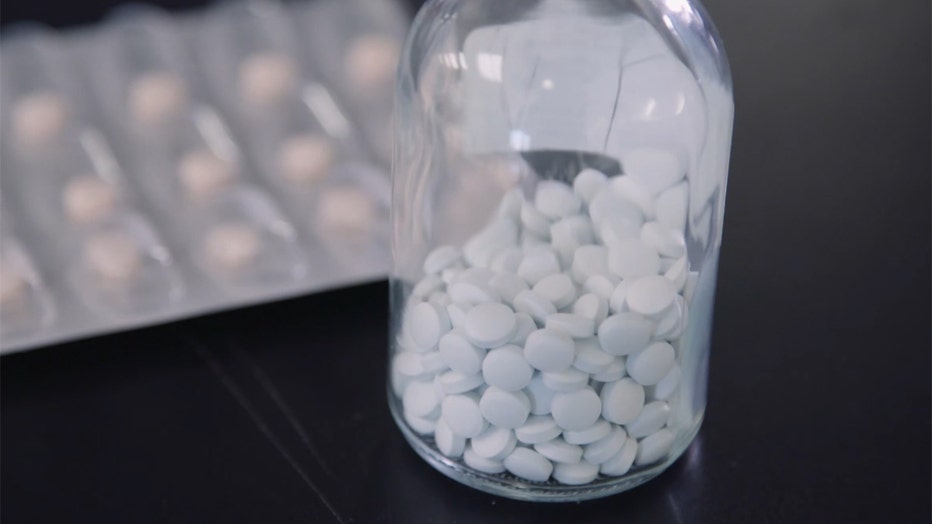You may be able to take a COVID-19 vaccine in a pill one day

Future of COVID vaccines
Several companies are looking at different ways to deliver a COVID-19 vaccine to a person. So instead of an injection, you might take a pill, nasal spray or skin patch.
NEW YORK - Queens critical care nurse Sandra Lindsay gave all of us hope last December when she became the first New Yorker to get the COVID-19 vaccine. More than 200 million shots in arms later, scientists are still developing new ways to protect us from the coronavirus.
"There are companies working on patch vaccines — in other words, almost like a Band-Aid where you'd apply it to your arm called transcutaneous administration," said Dr. Greg Poland, the director of the Mayo Vaccine Research Group at the world-famous Mayo Clinic.
One day in the near future, getting protection from COVID-19 might come in the form of a pill, nasal spray, or patch, he said.
A company called Vaxart is developing a COVID-19 vaccine that comes in the form of a tablet that could be stored at room temperature and even mailed to people at home.
"Instead of putting it into syringes, we actually put it into a tableting machine, coat it with something to protect it from stomach acid, and then put it in a blister pack or put it into bottles," said Dr. Sean Tucker, Vaxart's chief scientific officer.
Dr. Purvi Parikh, an immunologist at NYU Langone Health, said advancements in how we take vaccines will accelerate the process and help those who are afraid to get a shot.

A company called Vaxart is testing a COVID-19 vaccine in pill form. (Photo courtesy of Vaxart Inc.)
"The nasal spray makes the inside of your nose immune so it could stop the virus before it makes its way into your lungs and throat and bloodstream," Parikh said. "They do have some advantages because of that effect."
These scientific advancements go well beyond fighting COVID-19. Researchers told me they could be used to protect against other diseases or allergies.
Clinical trials are underway for these oral COVID-19 vaccines. While the pace of these innovations is fast, most expect we're not likely to see these vaccines in pill, patch, or nasal spray form until 2022 at the earliest.

